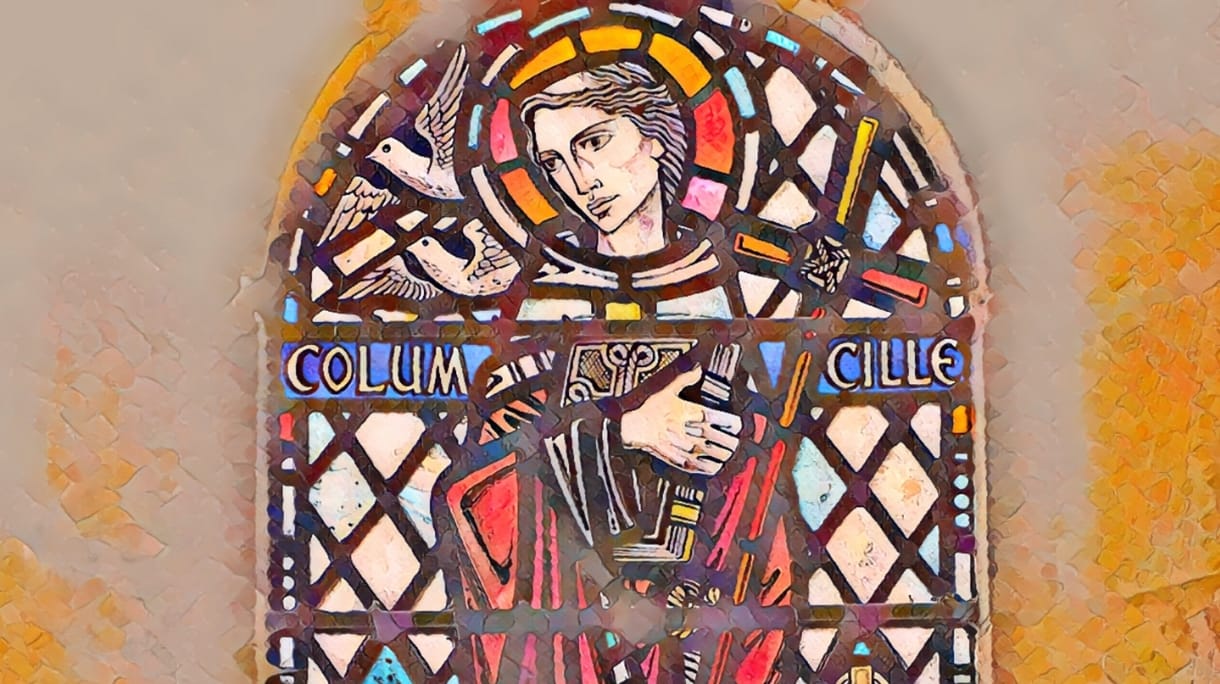Article originally printed in The Tower, a seasonal magazine produced by St Michael's Church in Edinburgh. Includes a printable leaflet and discussion points for a group discussion:
How Do We Share Faith in a Modern World?
Speaking about faith can be a challenge. In a society where beliefs vary and are often considered private, starting a conversation about spirituality can feel risky or intrusive. How do we share our experience of faith, especially when we do not know whether someone is open to the subject?
The answer may lie in small, sincere acts of love and presence.
Faith is not only spoken about, it is lived. When we create support structures, build relationships, and offer care, we reflect the love of God. This is a gentle way of reaching out, one that opens doors rather than forcing them.
There is growing recognition of the connection between spiritual well-being and mental health. Caring for people’s spirits matters. Sometimes, mission starts with something as simple as giving someone space to talk. Much of our daily conversation stays on the surface – the weather, the football results, local chit-chat. True fellowship happens when we go deeper, sharing feelings, fears and hopes in a safe and trusting environment.
In a house group, for example, people often discover creativity, purpose and potential they did not know they had. This can be a powerful way to encounter the image of God in ourselves and others.
Church Beyond the Building
Church is not just about a building or a Sunday service. It is about community. It is about people.
Evangelism alone is not enough to help people in Scotland come to faith and stay rooted in it. For many, the culture of the Church feels distant or unfamiliar. As Liam Jerrold Fraser puts it, "The culture of Church is so alien to non-Christians that it forces them to choose between it and 'normal' culture."
This is where innovation in mission matters. Pioneer Ministers in the Church of Scotland are often based in community settings, finding ways to engage through ordinary activities. Could mission begin with offering hot drinks at a local football tournament or hosting a bake sale at a school fair? Do we need to speak explicitly about faith from the outset?
Perhaps not. Mission begins with God. The Church exists to serve that mission, not the other way round. As one theologian wrote, "It is not the church that has a mission but the mission that has a church."
Jesus entered fully into the life and culture of his people. The early apostles showed that no one culture owns the Gospel. Every culture can express and live it in ways that are true to both faith and context.
Drawing the Circle Wide
"Draw the Circle Wide" is a phrase often used in ecumenical mission. It expresses the desire to include more people, more communities, and more voices in the work of the Church.
Mission and unity are closely linked. They are not separate tasks but part of the same calling. The Church of Scotland believes that God calls us to work alongside other Christian denominations, both in Scotland and across the world. This is expressed through local partnerships, national dialogue and international relationships.
The current Church of Scotland Presbytery planning process reflects this call to unity. Congregations are coming together to share resources and to reimagine mission for today’s world. This brings challenges but also great opportunities, encouraging us to think more widely about the people we are called to serve.
Playing to Our Strengths
Each of us has been given gifts. The question is, how can we use them in mission?
"God, please give me guidance in the best way to glorify You with this gift. I pray that through my strengths, others would be able to see You and know that I am Yours."
The psalmist writes, "I praise you, because I am fearfully and wonderfully made" (Psalm 139:14, NIV). This is a reminder that our unique personalities, skills and passions are not random. They are part of how we serve God.
Your strength might be hospitality, listening, story-telling, music, teaching, administration, encouragement, or countless other things. These are not secondary to mission; they are central to it.
Transformation or the Status Quo?
Disciples are called to transformation. By definition, they cannot settle for the status quo. They look at the world through the lens of God's promises and are inspired to act.
This raises questions. Are we trying to change others too quickly, or are we listening to what God is doing first? What would mission look like if we allowed God to lead more and ourselves less? Mission is not about pressure or persuasion, but about openness to the Spirit’s guidance.
Trusting the Weaver
Sometimes, faith is most visible in the quiet moments. In the poem “The Weaver,” Grant Colfax Tullar reflects on how God sees the bigger picture of our lives, even when we do not:
The dark threads are as needful
In the weaver’s skilful hand,
As the threads of gold and silver
In the pattern He has planned."
Mission often unfolds quietly, in the background of everyday life. It is not always dramatic or measurable. But it is real, and it is holy.
Conclusion: Mission as a Way of Living
Mission is not a programme or a strategy. It is a way of living. It is about embodying Christ in all we do, so that others might glimpse something of his love through us.
So let us talk about faith when the time is right. But let us also live it, in unity, in service, in creativity, and in trust.
Draw the circle wide. Begin where you are. Let God’s mission shape our calling as Church.
Sources and Further Reading
Collins, Emerson. “9 Steps to Glorify God with Your Gifts.” Focus on the Family, July 21, 2023.
Fraser, Liam Jerrold. Mission in Contemporary Scotland. Saint Andrew Press, 2021.
Keum, Jooseop. “Conference on World Mission and Evangelism Report.” International Review of Mission 107, no. 2 (December 2018): 547–60.
Matthew, Stewart, and Kennth Scott. Leading God’s People. The Saint Andrew Press, 1986.
Powell, John. Why Am I Afraid to Tell You Who I Am? Zondervan, 1999.
Ross, Kenneth R. “Draw the Circle Wide.” International Review of Mission 110, no. 2 (November 2021): 246–60.
Swinton, John. Finding Jesus in the Storm: The Spiritual Lives of Christians with Mental Health Challenges. SCM Press, 2020.
The Church of Scotland. “Ecumenical Relations - Relations with Other Churches,” June 12, 2018.








Comments